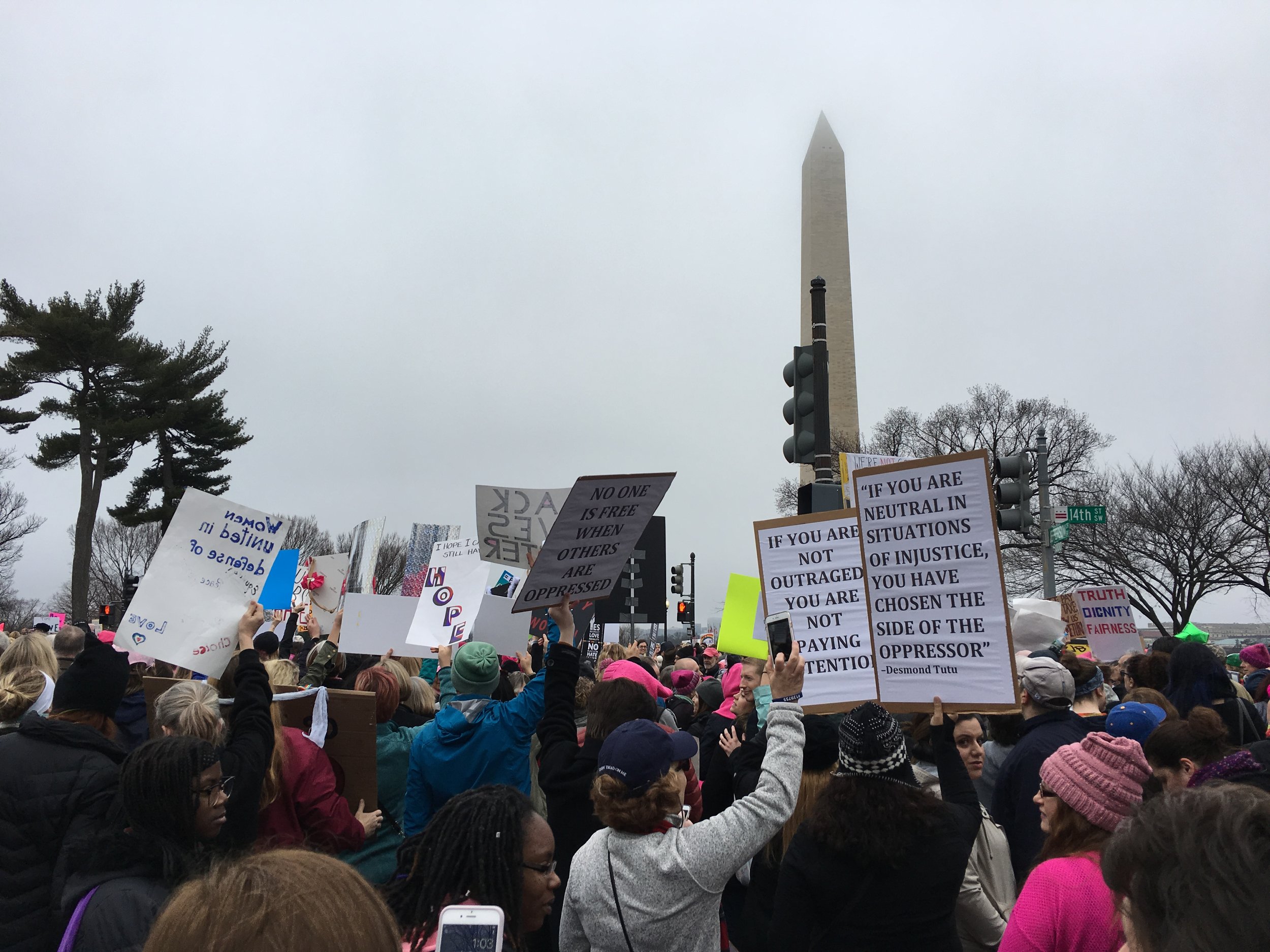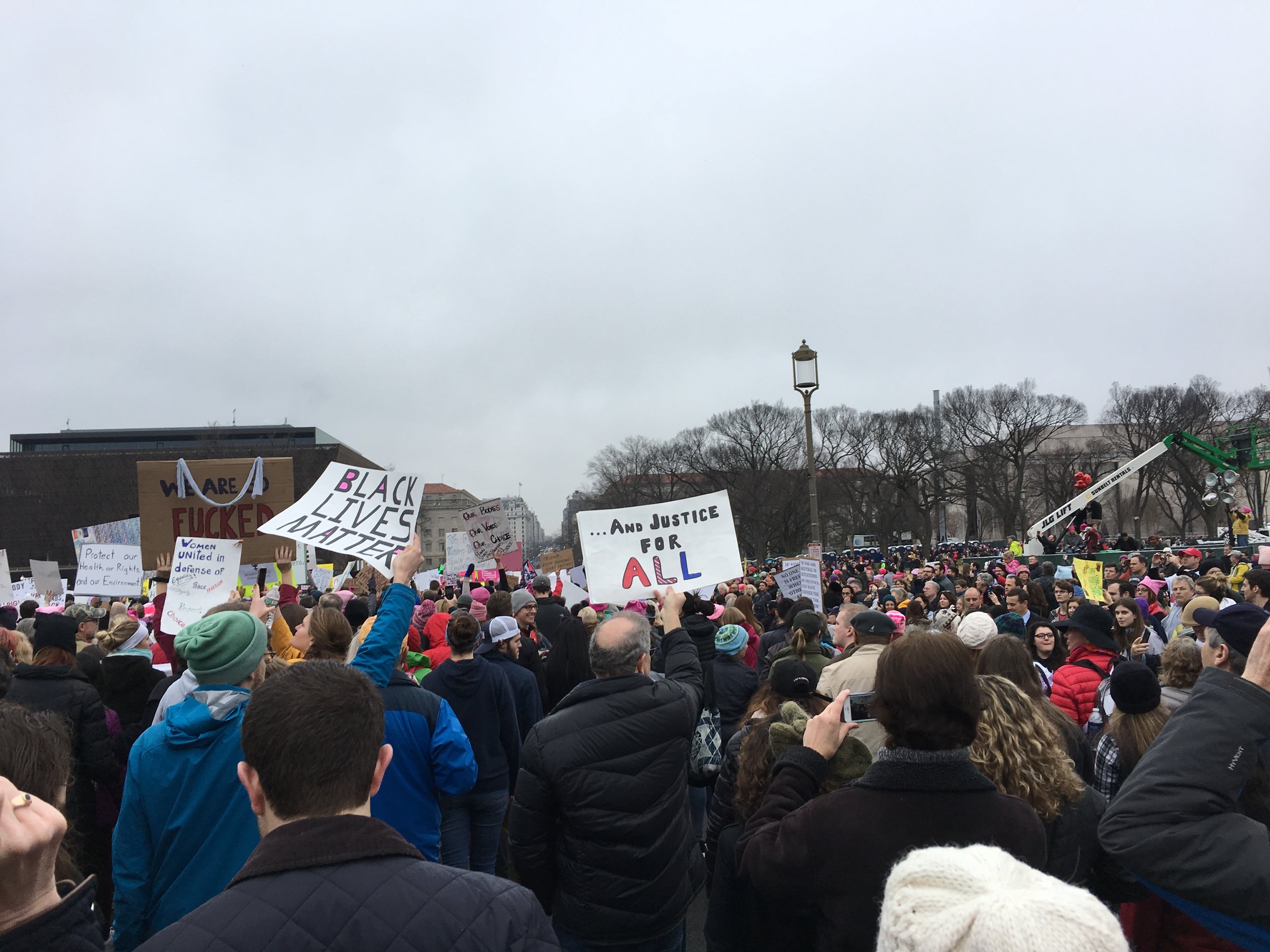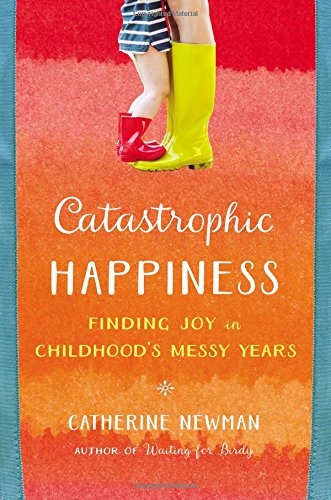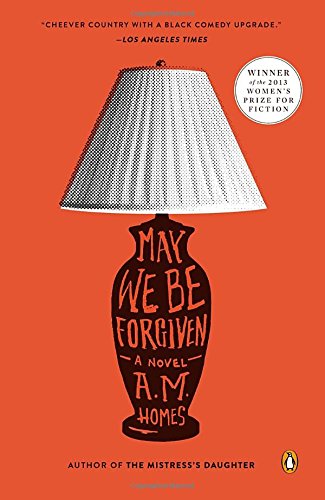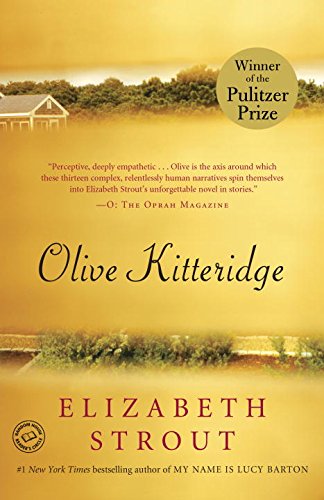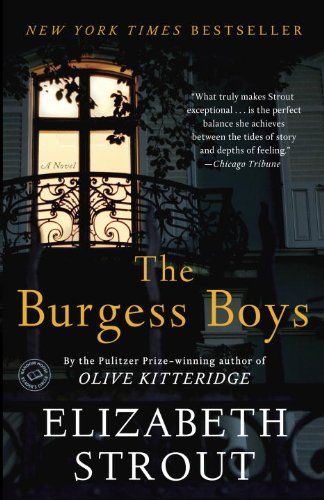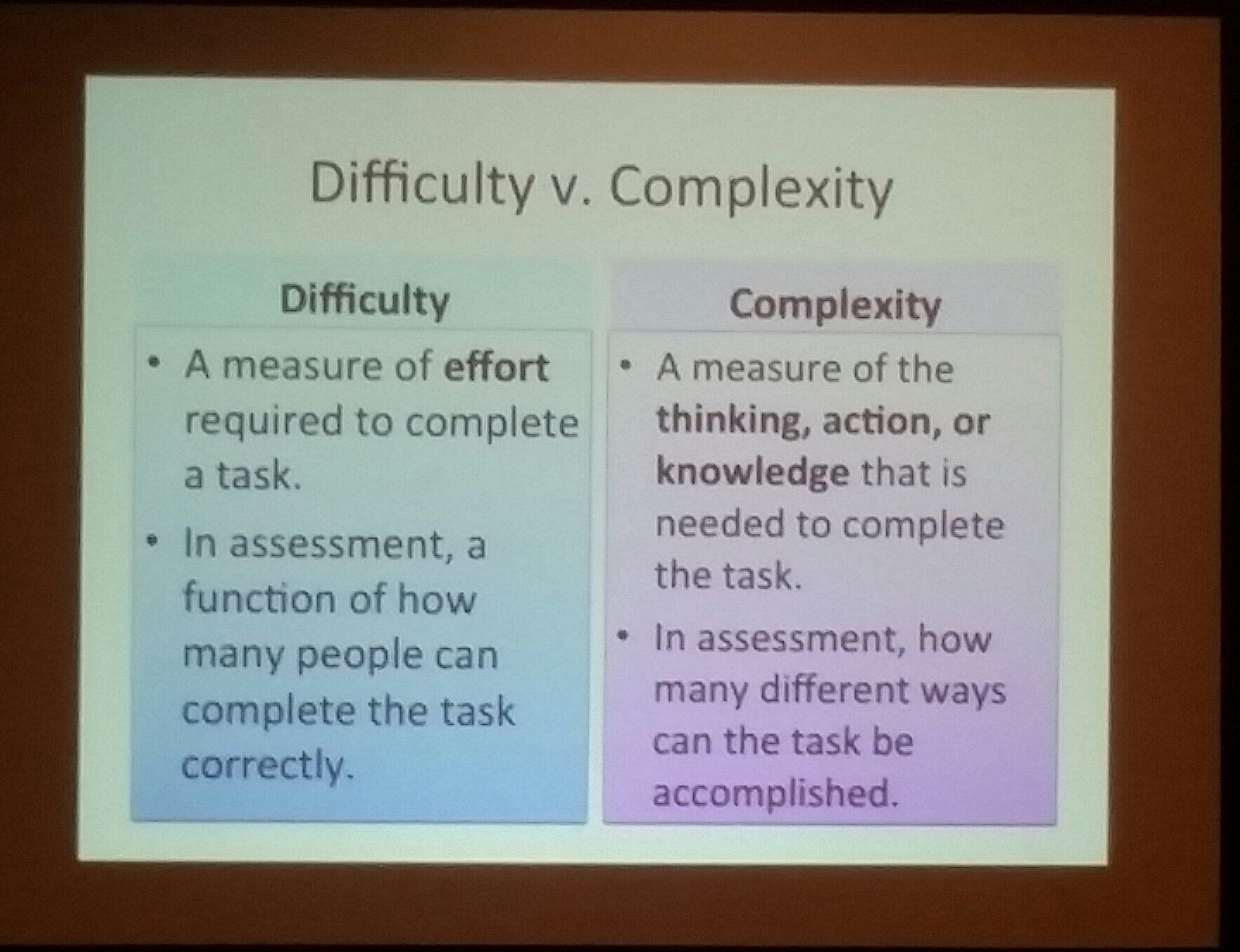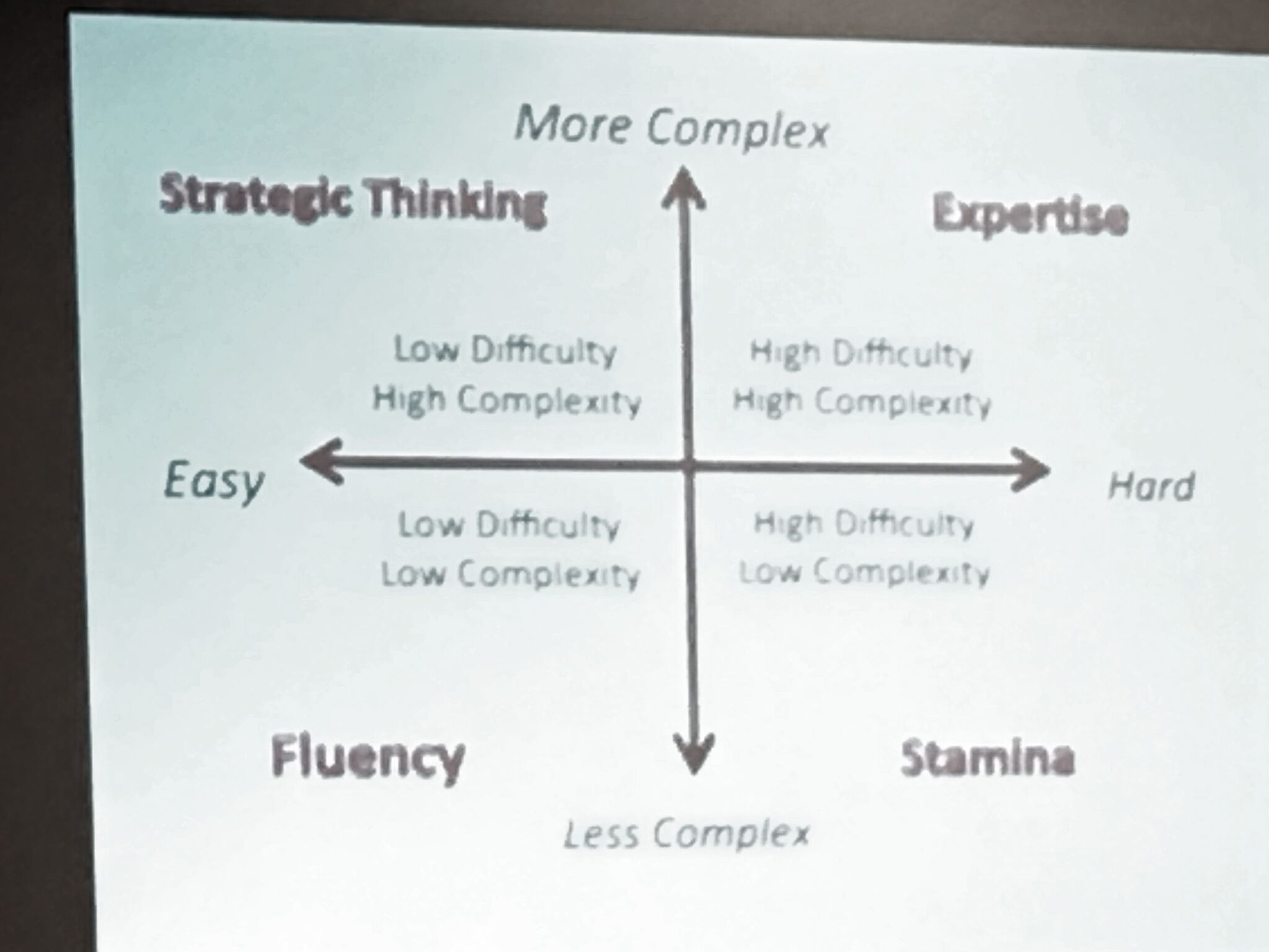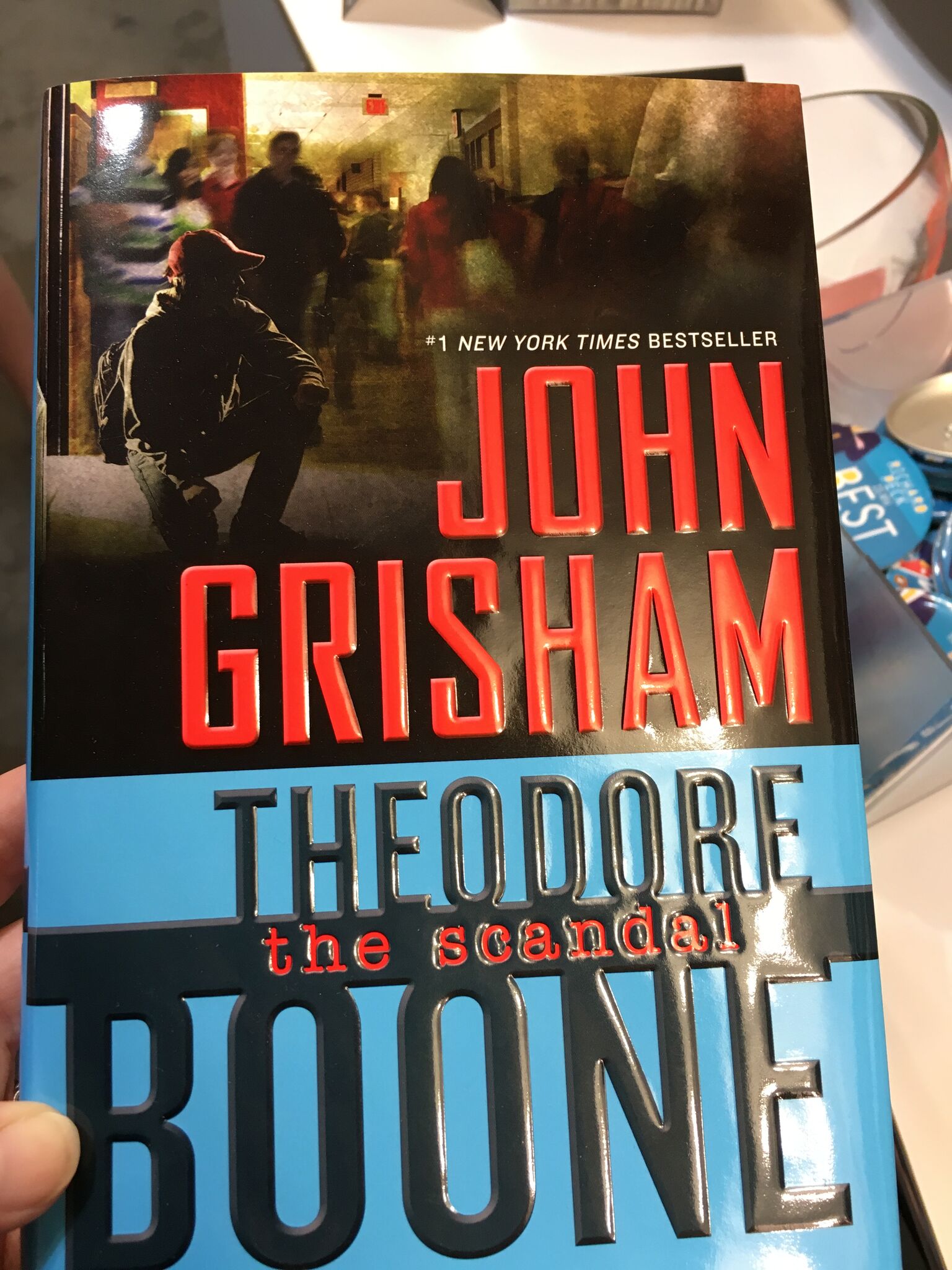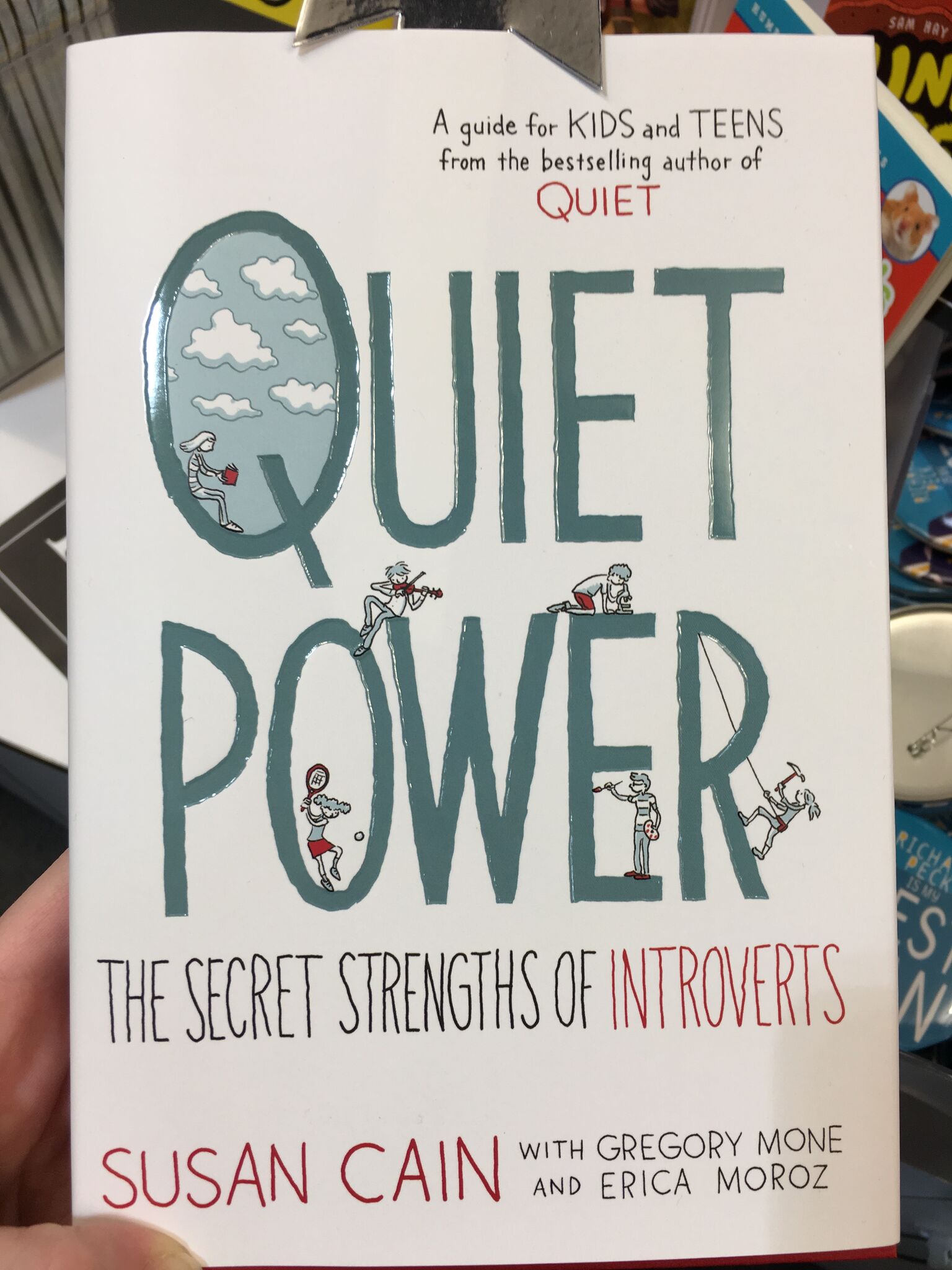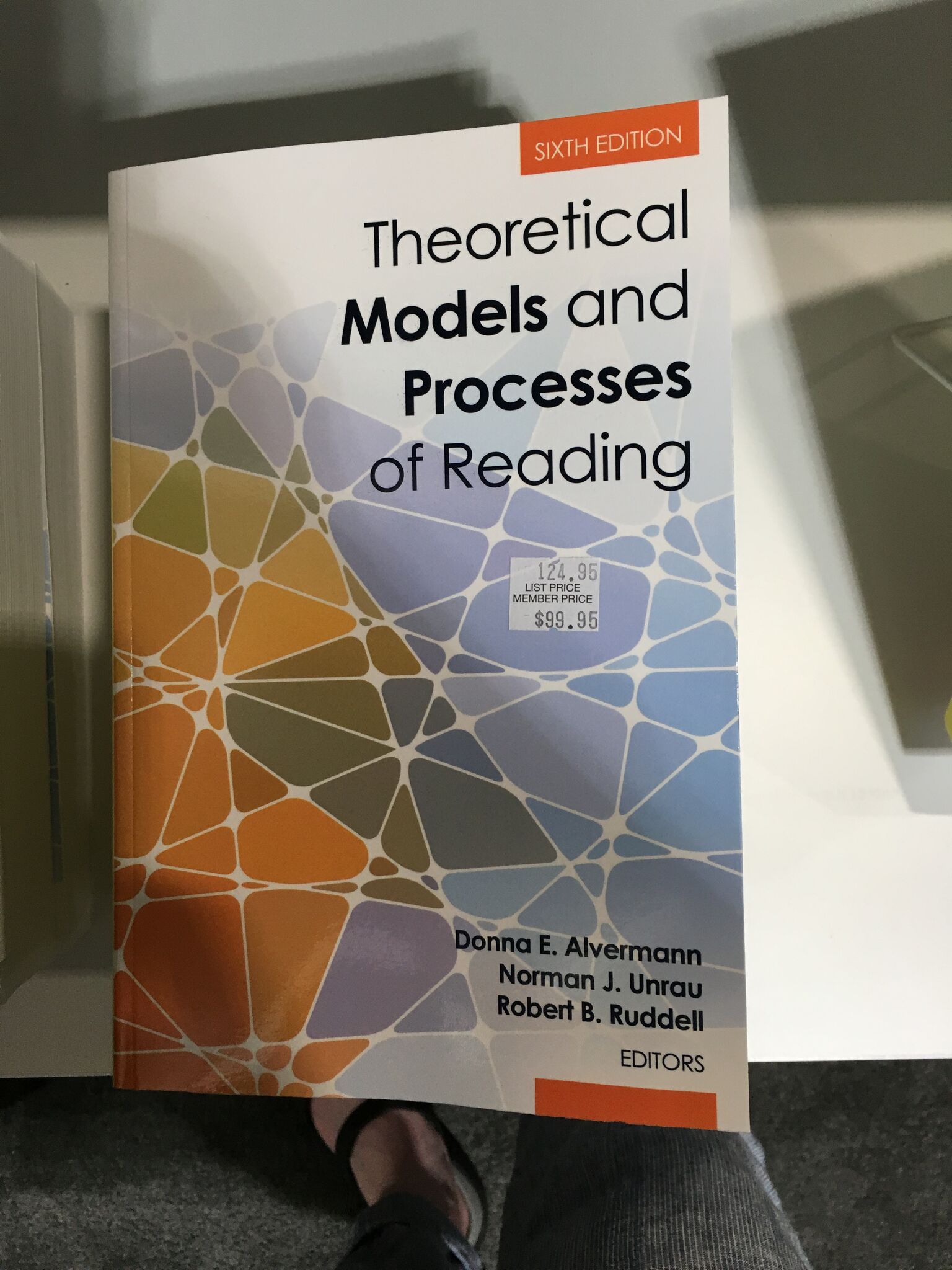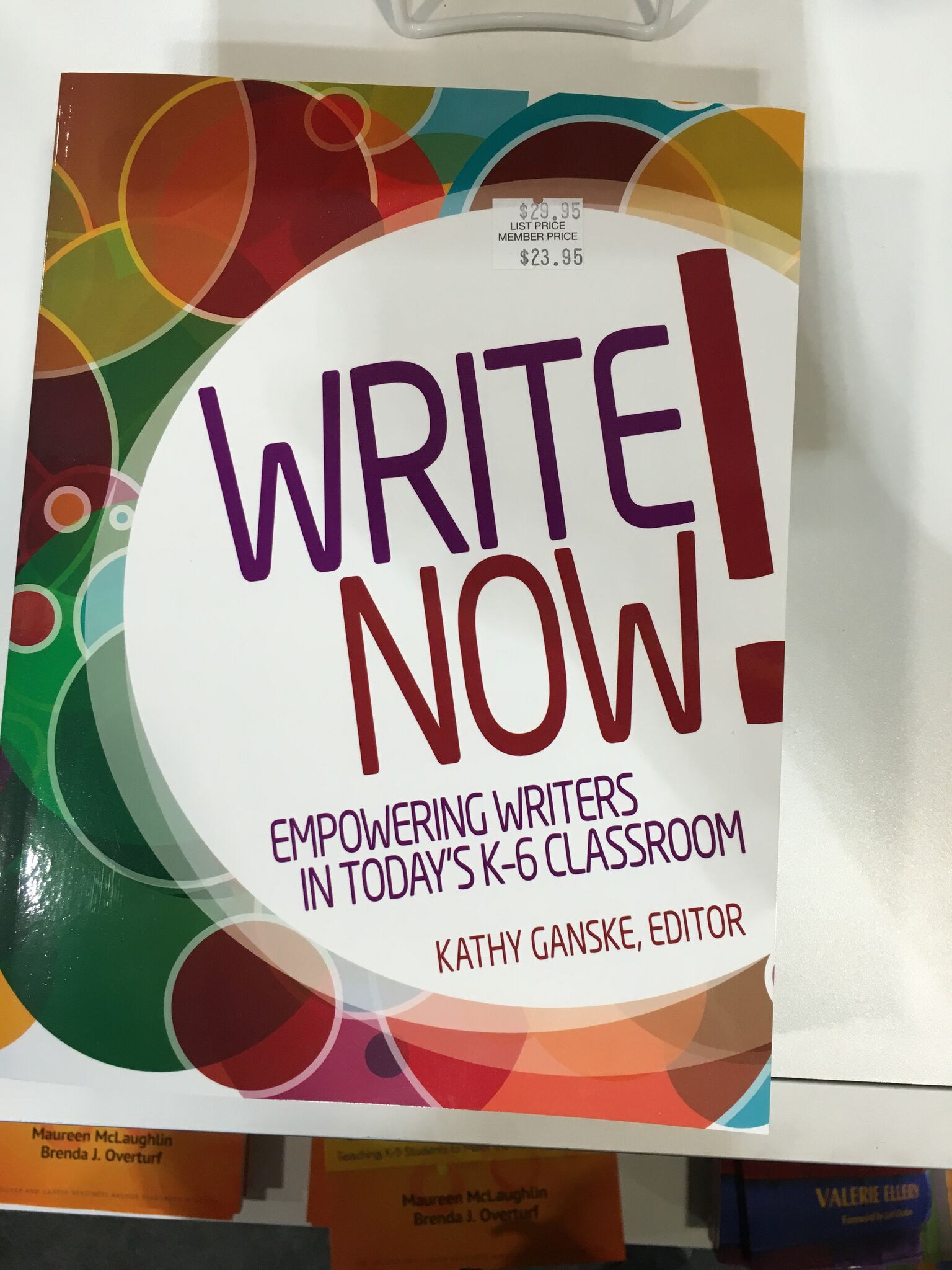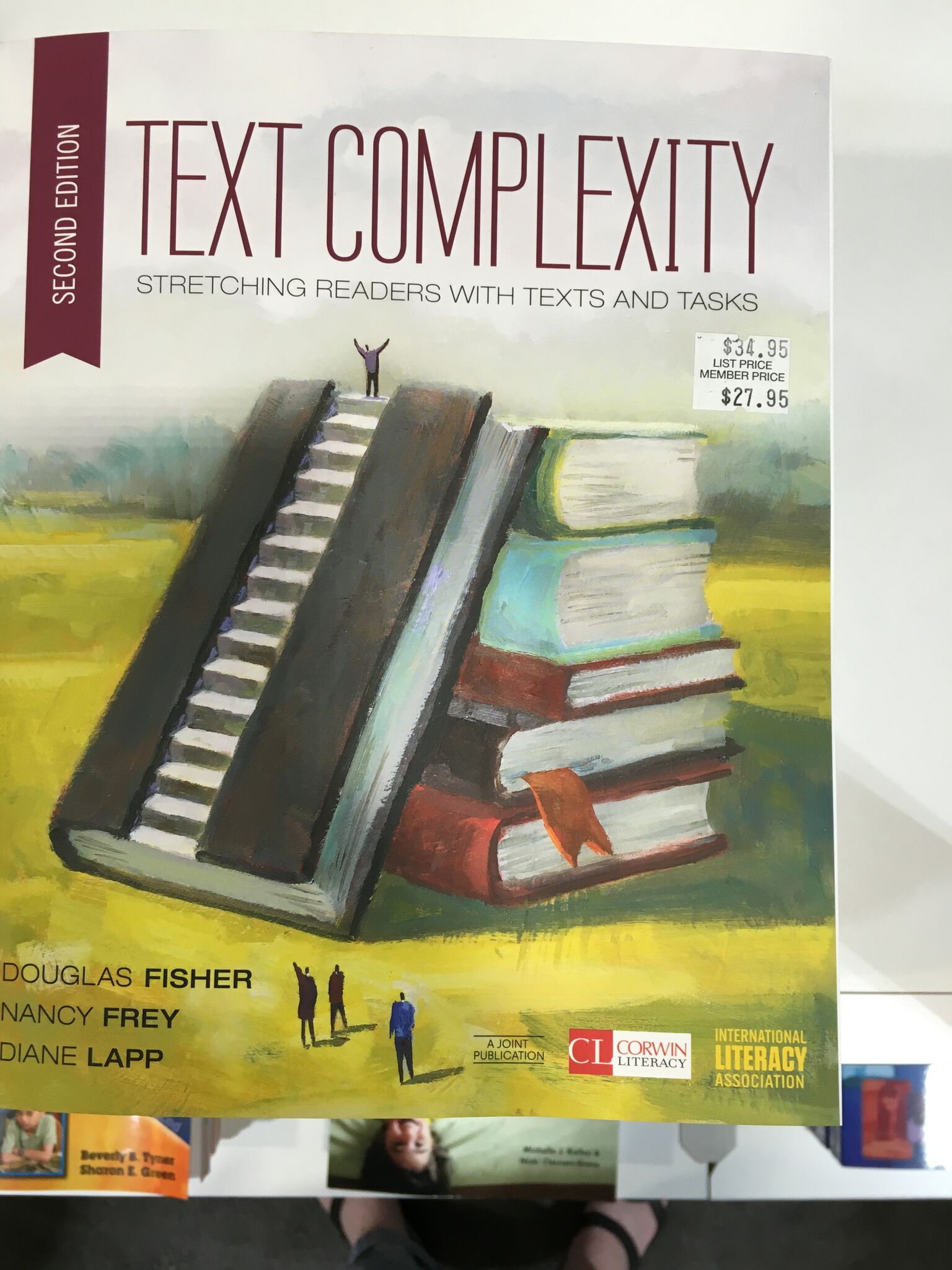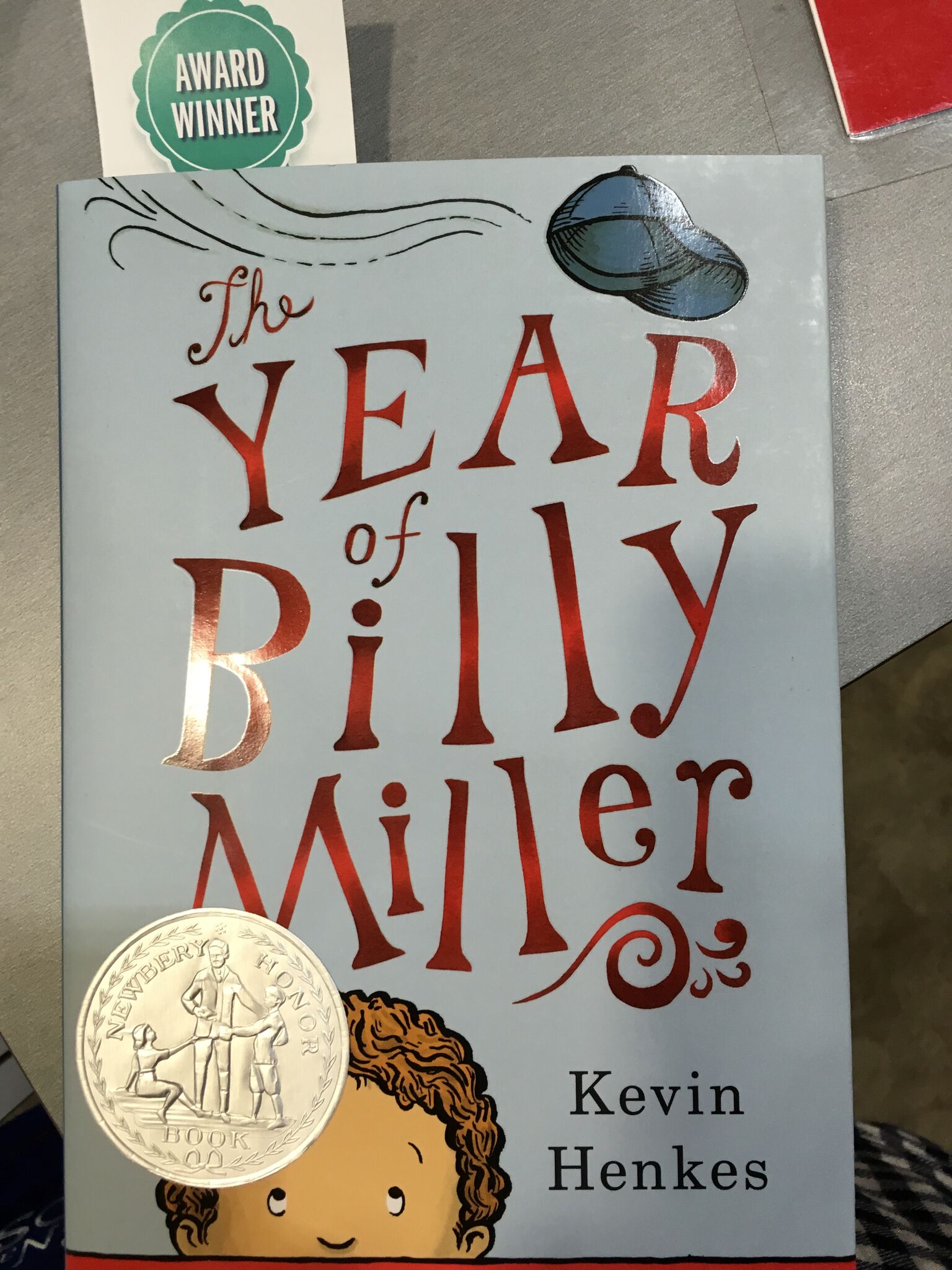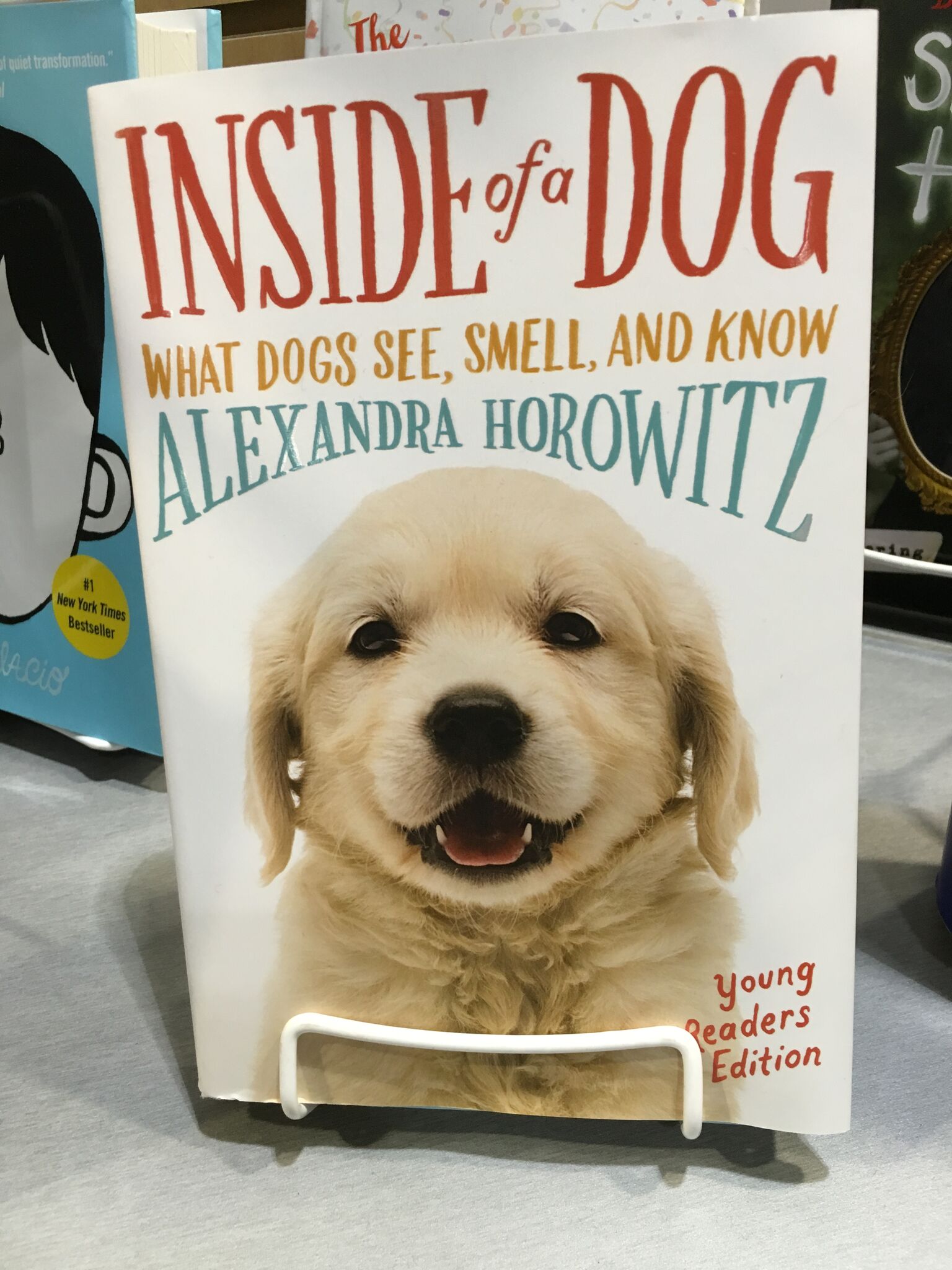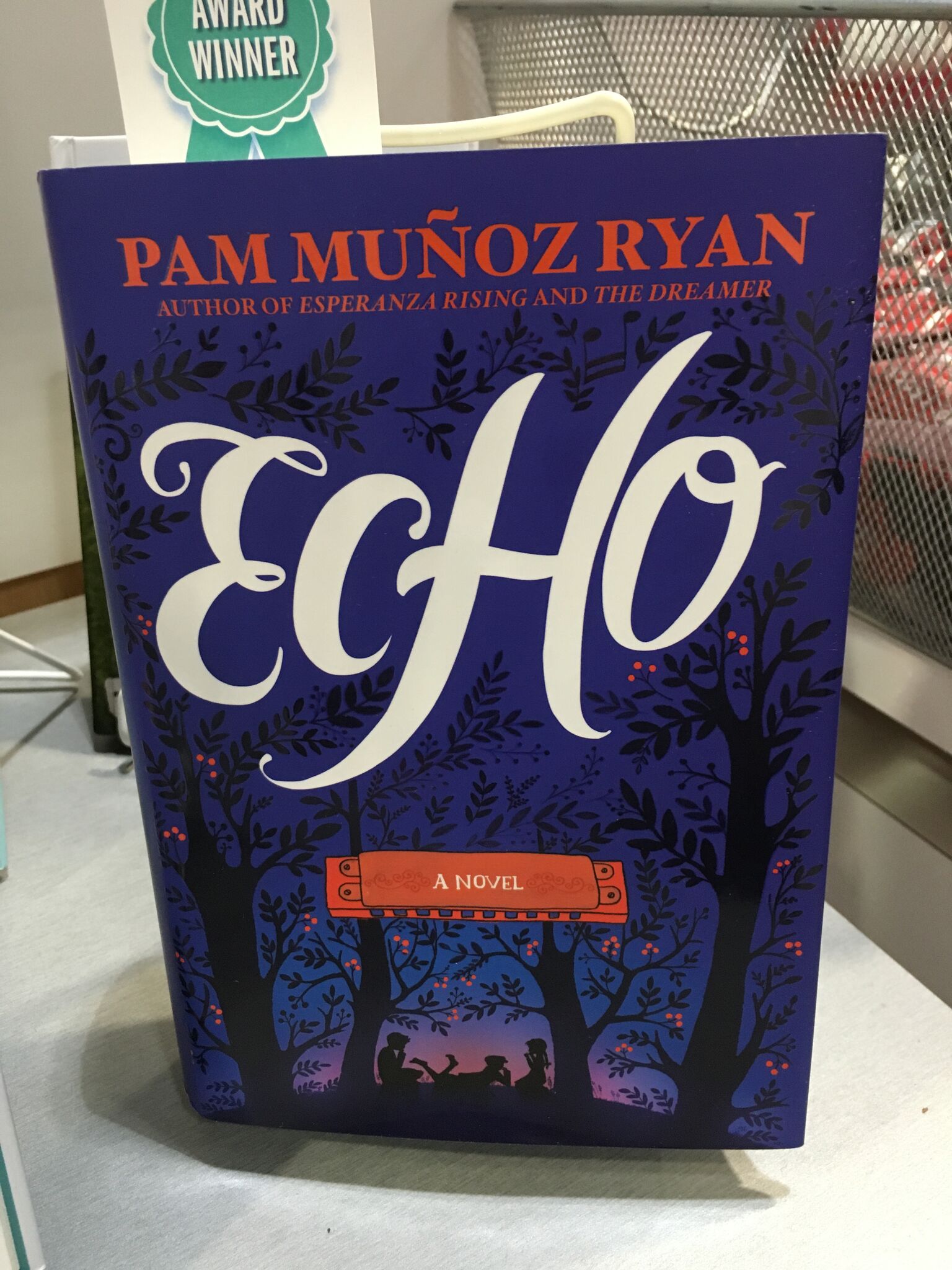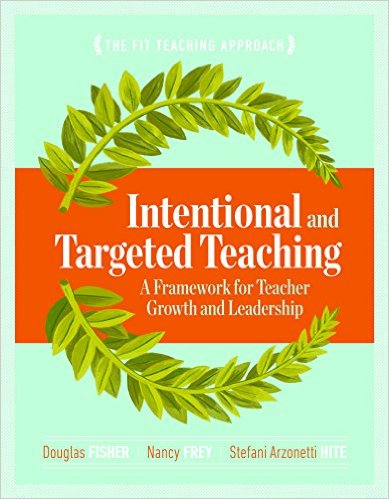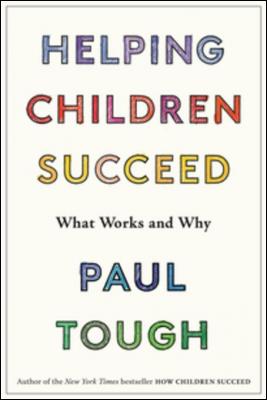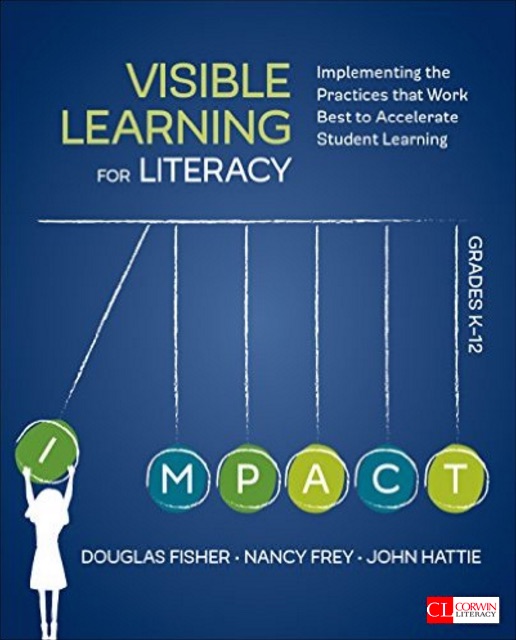Prudence Be Damned (#babysFirstMarch)
/Farewell, Obamas, farewell.
I did not agree with President Obama’s policies to improve education ("Race to the Top”), but I still respected his efforts to do something. I agreed with him on many issues, though not on all. Nonetheless, I trusted that his decisions were sound, that they were based on facts, that he took into account other viewpoints, and that he considered all options. Above all, no matter how much I disagreed with him, I trusted his competence. I cannot say the same thing for anyone in the current administration.
Politics aside, President Obama exemplified grace and strove for justice. He remained classy and polite, despite horrendous circumstances (i.g. welcoming the orange monster to The White House). Even when I wished he would slight the new administration, he didn’t. Somehow he found the strength to follow the traditional transition protocol and to welcome the new first family, despite the unusual circumstances. I know many people felt that he was doing the right thing to preserve our democracy, but I can’t say I agree. Part of me wishes he had lashed out at the grabber, even though doing so would be uncharacteristic.
It’s up to us to protest in whatever way we can. I feel guilty when I read articles about how all millennials just post on social media but don’t take any action. I would call my representatives in congress, but unfortunately I don’t have one. Not one who can vote, at least. The approximately 600,000 residents of the District remain without federal representation.
What is left to do? I can write, and I can sign online petitions, and I can march. Check, check, and check.
The planning for the Women’s March on Washington has been controversial, as has the name itself. Its website is fairly lousy, and only today was the final map revealed. Plus there is the issue of men and their participation:
It’s also interesting to see a relative lack of male enthusiasm interpreted as a problem that falls on women.
Given all that, plus the crowds, the irritating bag restrictions, and the difficulty actually getting there, why march?
- To prove that we, the people, reject all things associated with the new administration, the most recent outrage (as of Friday) being the amoral and incompetent cabinet secretary nominees. (Not to mention the cowardly senators who will likely vote to approve their nominations.)
- To protest threats to dismantle the ACA, because everyone deserves to have affordable health care regardless of preexisting conditions.
- To show support for key provisions of the ACA, especially those that support families, mothers, and babies.
- To stand up for the humanity and the rights of immigrants, those with disabilities, racial and ethnic minorities, and women.
- To make it clear that we believe in the value of the National Endowment for the Humanities and the National Endowment for the Arts. (Turns out that eliminating these agencies would fund the Pentagon for all of 11 hours.)
- To support the continued existence of journalism, the free press, and real news.
- To demonstrate against those who seek to control women's bodies because women's health shouldn't be a political issue. (Um, a gun requires more regulation than a uterus.)
- To reject the increasing influence of special interests and the 1%.
- To tell the rest of the world that we do not accept this reality.
- To express dissent and to always remember that this is not normal.
- Oh, and a million other reasons.
We marched today. It was not the easiest way to spend the afternoon with a baby, and it might even be a little bit crazy to take a baby downtown for a crowded march, especially when one has to procure and pack all of baby's items in a clear plastic bag. But it was worth it.
Prudence be damned.
We rode downtown on 2 buses without much trouble, only to see people walking every which way. (Given all the talk about entering the rally at Independence & 3rd Sts. with plastic bags of specific dimensions, I was surprised to see that there was a minimal police presence, no bags were being checked, and there were no barricades along the route.) We made our way from 9th & H Sts. down to Independence, which was blocked. We then walked over to 14th St. and were able to join the march there.
Hordes of people puttered along 14th St. by the Washington Monument and the African American History Museum chanting, among other things, "This is what democracy looks like," "If you want to build a fence / Build it around Mike Pence," "My body, my choice / Her body, her choice."
Some of my favorite signs pronounced:
You can't comb over bigot
NOT USUALLY A SIGN GUY BUT GEEZ
I've seen smarter cabinets at IKEA
I know signs. I make the best signs. They're terrific. Everyone agrees.
I'm revolting because he's revolting (Dad's sign)
And this was my favorite:
I toted Rebekah around in my carrier, and after a couple hours we ducked out of the march and over to his office so I could feed her. Plenty of men showed up to protest, as did a number of people with disabilities. I wish I'd had one of those amazing hats!
I just hope this is not the end of the protest against all things terrible. It was heartening to see so many people turn out in DC with signs and chants. There was an energy to the crowd similar to what I experienced at the first Obama inauguration in 2009: the feeling that those crammed together on a cold day felt just as strongly that justice must prevail. The crowds both here and abroad were stunning. We are not alone.
It would be easy to stop now, to get excited by the frenzy of the crowds, but to return home and do nothing. It would be easy to forget amid the chanting that real people's lives are going to get vastly more difficult in the coming days. It would be easy for us to participate this one day and not again. It would be easy to be distracted from the real damage he is inflicting by minor issues like the crowd size at the inauguration or Meryl Streep. I am not sure what to do other than stay informed, painful as that may be, and challenge the media when they excuse his behavior. But we must make our voices heard for the next four years.







